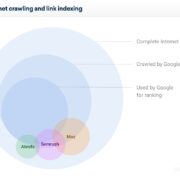Introduction
Telecom companies have been using social media for years to help them sell their services and connect with customers. However, the way telecom is using social media is changing rapidly as new technologies arise. In this article, we’ll take a look at how telecom is using social media, how it’s changing, and how the future of telecom will be shaped by these changes.
The Rise of Social Media and Telecom
With the advent of social media, telecom companies are starting to adapt their services to better cater to consumers. Social media has made it easier for people to connect with each other, and it’s been a huge boon for businesses. Telecom companies are starting to see the benefits of using social media to market their products and services.
One of the best ways that telecom companies are using social media is by using it as a way to market their services to customers. Some companies are using social media platforms such as Facebook and Twitter to advertise their services in specific areas. For example, Verizon Wireless uses Twitter to market its service in the travel industry.
Telecom companies are also using social media as a way to connect with customers. These connections can be made through discussion boards, blogs, and videos. For example, AT&T has a blog that discusses various topics related to telecommunications.
Overall, social media is changing the way that telecom companies market their products and services. By using social media platforms, telecom companies are able to connect with their customers in a more personal way.
How Social Media is Changing Telecom
Social media is changing the way people communicate and consume information. Telecom companies are responding to these changes by creating their own social media platforms to connect with customers. This article discusses how telecom companies are using social media to connect with their customers and what benefits they believe it has brought them.
Introducing Social Media Slicing
In the past, telcos have relied on large networks to spread the word about their products and services. But that’s starting to change as social media platforms like Facebook, Twitter and LinkedIn become more popular. Telcos are now using these platforms to distribute content directly to their customers and prospects, bypassing traditional marketing channels.
For example, AT&T has been using its Facebook page to promote new products and services. It has also used its Twitter account to update followers on important events and make announcements. And it recently launched a new LinkedIn page dedicated to promoting job opportunities with the company.
This direct approach is helping telcos tap into a growing market of social media users who are increasingly interested in telecommunications products and services. In addition, telcos are able to target specific groups of consumers with tailored content. This approach can be especially effective in attracting new customers or retaining current ones.
Overall, social media is changing the way telecom companies distribute content to their customers and prospects. By using social media slicing, telcos are able to reach a wider audience with more relevant information.
Impact of Social Media on Telecom
The impact of social media on telecom is clear. Social media has completely transformed the way people connect and share information. The ability to communicate and collaborate remotely has revolutionized the way companies operate, from small businesses to large multinationals. Additionally, social media has had a significant impact on how people consume information. Rather than relying solely on traditional media sources, consumers are now able to find and access information through a variety of channels. This shift has made it easier for people to learn about new products and services, and to connect with like-minded individuals. Overall, social media has had a positive impact on telecom by increasing consumer choice and engagement, as well as facilitating communication and collaboration between different groups of people.
What are the Advantages and Disadvantages of Social Media for Telecom
There are a few clear advantages and disadvantages of using social media for telecom companies. On the one hand, social media can help to build brand awareness and attract new customers. This can be especially beneficial for smaller companies that may not have the resources to invest in traditional marketing campaigns. Additionally, social media can be used to gather customer feedback and feedback on product offerings. This is an important function for companies that are constantly updating their products and services.
However, social media can also be a distraction for employees. It can be hard to stay focused when you’re constantly responding to comments or liking posts. Additionally, social media can be a public forum where inappropriate comments or remarks can be made. This can damage company reputation and damage relationships with customers.
Overall, it’s clear that social media has both advantages and disadvantages for telecom companies. It’s important to consider the specific needs of your business before making any decisions about using social media.
Conclusion
Telecoms have always been a huge part of our lives. Whether we’re talking on the phone with family and friends, checking social media, or using telecom services for work purposes, there’s a lot to love about them. But as social media has taken hold and Internet usage has grown exponentially, telecoms are also changing rapidly. In this article, I’ll explore how social media is impacting telecommunications and how businesses are responding. I hope that by reading this article you’ll be better equipped to understand what’s happening in the world of telecom and how it’s affecting your everyday life.




















Comments